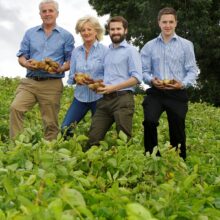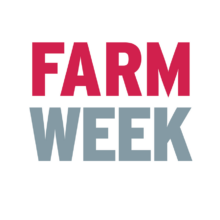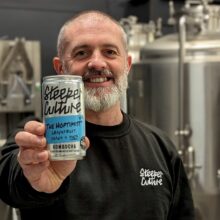Local food firms lead in new scheme to preserve our precious environment

It is really encouraging to see the strong influence from Northern Ireland on the development of the inspirational Foundation Earth initiative designed to raise further awareness of the need to focus on preserving our precious and threatened environment. Artisan and smaller food and drink businesses here have already been making a major contribution to sustainability,
The Foundation Earth initiative will roll out eco-scores on food packaging, similar to those we are used to seeing on consumer appliances. It is the brainchild of the late Denis Lynn, the founder of Finnebrogue Artisan in Downpatrick. As I have written before in this column, Finnebrogue is a leading innovator in plant-based food products and a Food NI member company.
The scientific adviser to the new not-for-profit organisation is Queen’s University’s Prof Chris Elliott, the driving force in global food safety, and an expert on food security.
Another key player in the initiative is Dominic Darby, previously on the senior management team at Finnebrogueand now head of innovation at Marks and Spencer Food.
Among the early support pledgers for the scheme is Mash Direct from Comber, another Food NI member company and among our most environmentally friendly food producers. The successful company, of course, draws its focus on the environment from its base on the Hamilton family farm and its vast experience on producing plant foods for international customers. Mash Direct, in addition, has been at the forefront of conservation and recycling schemes in the business and on the family farm.
Global food giants such as Nestlé, alongside retailers including M&S, the Co-op and Sainsbury’s, are among the members of the new organisation which aims to roll out front-of-pack eco-scores on food from September.
This potentially very important labelling scheme will draw on data from the world’s leading systems for measuring the environmental impact of food production – devised by advisory company Mondra and the EU-funded food innovation initiative EIT Food.
It’s an ambitious scheme. The foundation is aiming for a full rollout of the labelling scheme across Europe from next year. What the scheme will do is to indicate carbon emissions, water usage, impact on biodiversity loss and water pollution in a product. The scheme will also analyse a product’s environmental impact from farming, processing, packaging and transport.
The foundation aims “to promote more sustainable buying choices from consumers and more environmentally friendly innovation from food producers, who will be determined to secure a better score”.
Each business pledging support has signed up to “explore the potential for environmental labelling on food products and to support Foundation Earth’s ambition to help build a more sustainable food industry”. A separate scientific committee will be led by Professor Elliott.
It’s a worthy and a very important initiative. Much will depend on how the information is presented on packaging which also often includes nutritional traffic lights. The obvious concern is that labels could become confusing with too much health and safety data on the front. I am sure the experts will come up with a format that makes it easy for consumers to comprehend. I think consumers are ready for it.
It’s almost a relief to see a developing global approach to the growing and threatening environmental challenges from climate change.
Foundation Earth said the scheme would “create a universal eco-labelling scheme that is based on good science and that customers can easily follow”.
UK Environment secretary George Eustice said the foundation’s ambition to develop a universal eco-labelling scheme had “the potential to help address the urgent challenges of sustainability and climate change”.
It’s a great step forward for our industry and heartening to know that it was inspired by the vision of one of our most forward thinking entrepreneurs, Denis Lynn.








